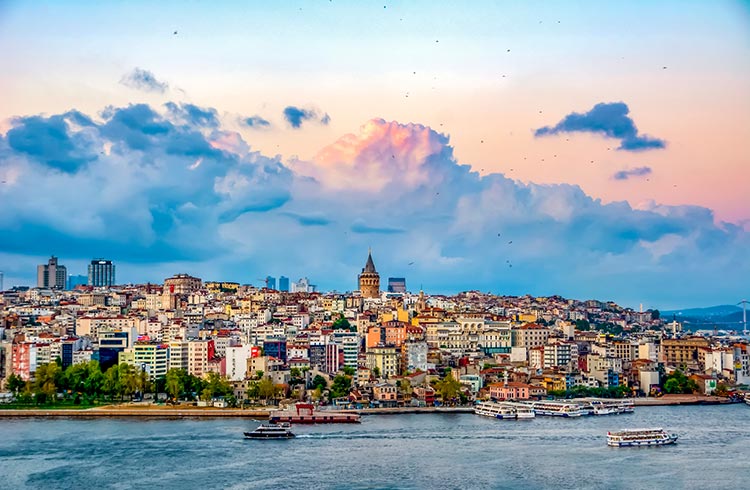Latest Travel Alerts and Warnings for Visitors to Turkey
What are the issues affecting travelers to Turkey? Read the latest travel warnings and alerts.
 Photo © Getty Images/Photosensia
Photo © Getty Images/Photosensia
7.8 magnitude earthquake near Turkey-Lebanon border – 6 February 2023
The earthquake that hit Turkey at 4.17am was felt across the border in Lebanon and Syria. The epicenter was about 20mi (32km) from the city of Gaziantep, a provincial hub in the country's southeast. It was measured at having occurred at a depth of 11mi (17.7km). A second 7.7 quake hit later in the day.
Local video shows collapsed buildings including apartments, and more than 3,500 people are estinated to have died. Thousands have also died over the border in Syria.
Previous travel alerts for Turkey
5.7 magnitude earthquake near Turkey-Iran border - 23 February 2020
On Sunday 23 February 2020, a 5.7 magnitude earthquake struck near the Turkish–Iran border in the east of Turkey. Nine people have been killed in Van province, many were injured and thousands of buildings have been damaged.
A number of government travel advisories, including the USA and Australia, have listed the southeast region of Turkey as 'Reconsider your need to travel' and some parts as 'Do not travel' due to the threat of terrorism and crime.
What to do if you're in an earthquake
- Move to an open space away from hazards such as powerlines, buildings, trees and bridges
- Move away from any falling objects, crouch on the ground and cover your head
- Don't rush outside though – plenty of earthquake injuries happen when people fall while trying to run
- If you can't get outside safely, get under strong furniture or against an internal wall. Bathtubs or spaces behind furniture aren't the safest places – hiding under a bed or strong table is a better option, which will protect you from falling objects
- If you are in a wheelchair, stay away from any objects that could fall. Lock the wheels and cover your head with your arms
- If you are trapped under rubble, avoid wasting your energy or stirring up dust. Only call for help when you hear people nearby
- After the earthquake, get to your evacuation point. Try to get in touch with your embassy and emergency contact. Try not to waste your phone battery.
April 2018 – 7th State of Emergency Declared
A three-month long State of Emergency was declared across Turkey in July 2016 and was recently extended for a seventh time as announced by Turkey's president, Recep Tayyip Erdogan. The declaration gives the government sweeping powers to rule by decree. The president has also announced a snap election for June 2018, bringing forward the election by 18 months.
Travelers are warned the normal judicial procedures may be suspended, and police and military personnel will have wide-ranging powers. The authorities may impose curfews and other restrictions on travel at short notice.
You must observe and follow all directives. Check local news media for details of any changes that are made under this decree.
Shooting in an Istanbul Nightclub – 1 January 2017
When a lone gunman opened fire on NewYear's Eve partygoers at an Istanbul nightclub, 39 people were killed and more than 70 injured. A radicalized Uzbekistan national and 51 associated accomplices were arrested, and the Islamic State claimed responsibility for the attack.
Is Istanbul Safe in 2017?
It's important to check the government status of the area you are visiting – at time of publication, the status for certain areas in Turkey sit at Reconsider Your Need to Travel including Istanbul, which may in some circumstances have an impact on your coverage.
It is up to each individual to assess the level of risk they are prepared to take.
While the chances of being killed in a terrorist incident remain dramatically lower than being killed in a vehicle accident and even lower than death by falling over in a bathtub, the number of fatalities increased nine-fold between 2013 and 2014.
With the security situation in Istanbul considered high risk by several government travel advisories due to the risk of terrorist attacks including in popular tourist spots, now might be the right time to minimize your travel to Istanbul.
Many areas of Turkey remain trouble-free, and you may make the decision to go straight there rather than visit the historical sights of Istanbul. World Nomads emphasizes that you are covered for travel to Istanbul at present (subject to the government warning levels as advised above), but it may be wise to take the Blue Mosque off your bucket list for the time being.
Related articles
Simple and flexible travel insurance
You can buy at home or while traveling, and claim online from anywhere in the world. With 150+ adventure activities covered and 24/7 emergency assistance.
Get a quote

No Comments